

Kriti's annual summer camp for adolescent girls in the Talabkatta area serves as a platform for empowerment through education and skill development. This report highlights the findings of a small survey conducted during the camp to understand the educational status and aspirations of the participants, particularly focusing on girls aged 13-18.
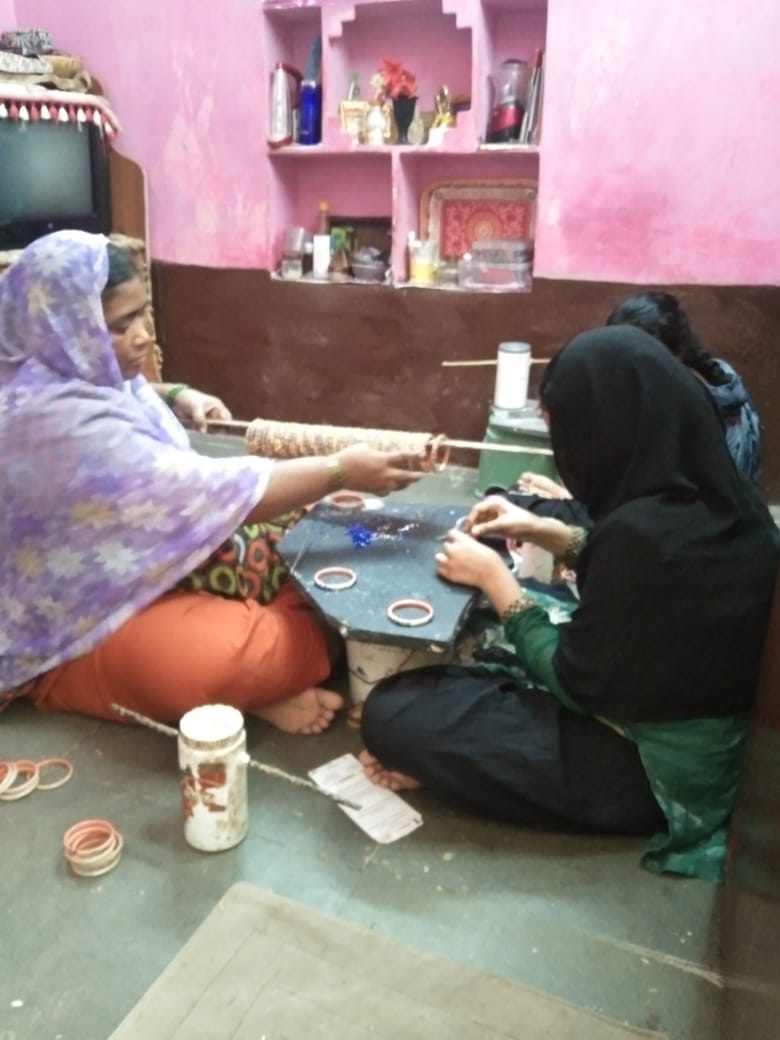
Kriti Social Initiatives has a broad mission of working on issues relating to urban poverty. This invariably means working with men and women who are working in the informal sector. Communication networks and the gig economy are two terms that are part of todays changing employment landscape
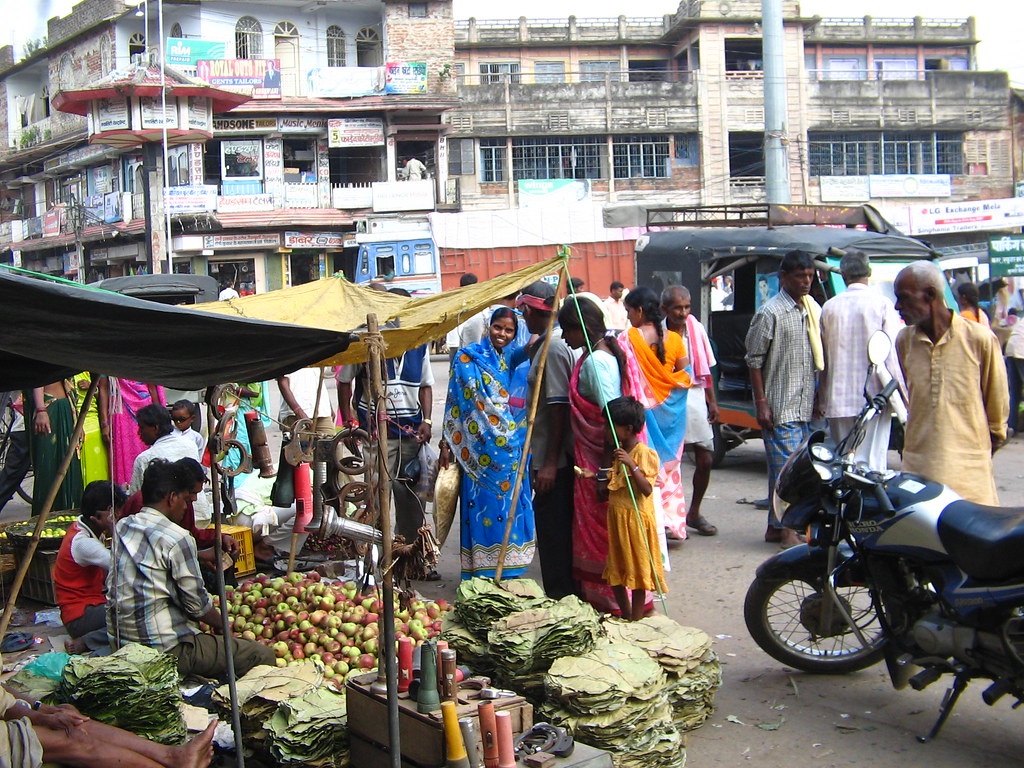
Hello! My name is Rusheel and I’m in my third year of undergrad in IIM Indore. At the end of the second year, we students have to undergo a compulsory social internship in order to advance to the next year.I had the opportunity to work for Kriti Sustainable Foundation and work directly with Himani ma’am, one of the founders of the organization.
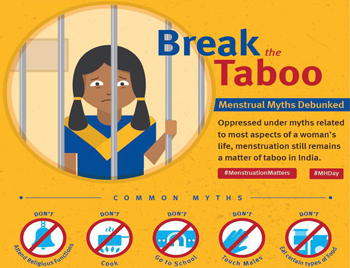
Most people will remember the reproduction chapter in class 9th science book – which defines menstruation as a normal biological process that happens to every person with a uterus. We also learned that most mammals on earth menstruate and it's a very unique yet common phenomenon.
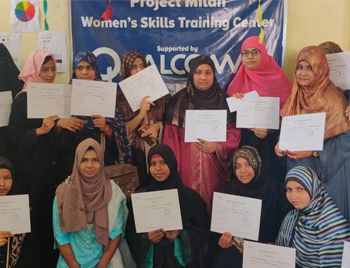
Tailoring training helps women to save money on the cost of garments and also earn income by taking stitching orders. Financial independence is a dream that everyone strives to achieve, but it remains only a dream for many underprivileged people. This is especially true for women in the lower-income groups.
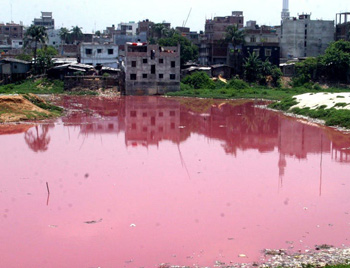
Water is one of the basic necessities without which we humans cannot live. We have read enough of the importance of water in our schools, colleges and newsprints. We have learnt that every living being needs it. Our chemistry classes in school have given us insight on the technical aspects of water.
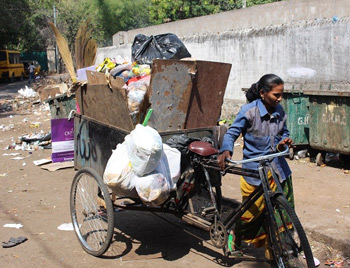
Everyday around 10 am, we keep our dustbins (segregated) for the housekeeping staff pick up. As a parent, we make sure our kids perform almost all the household activities. My daughter always notices these two people dressed in uniform approaching the house with two big drums on the cart to pick up the waste.
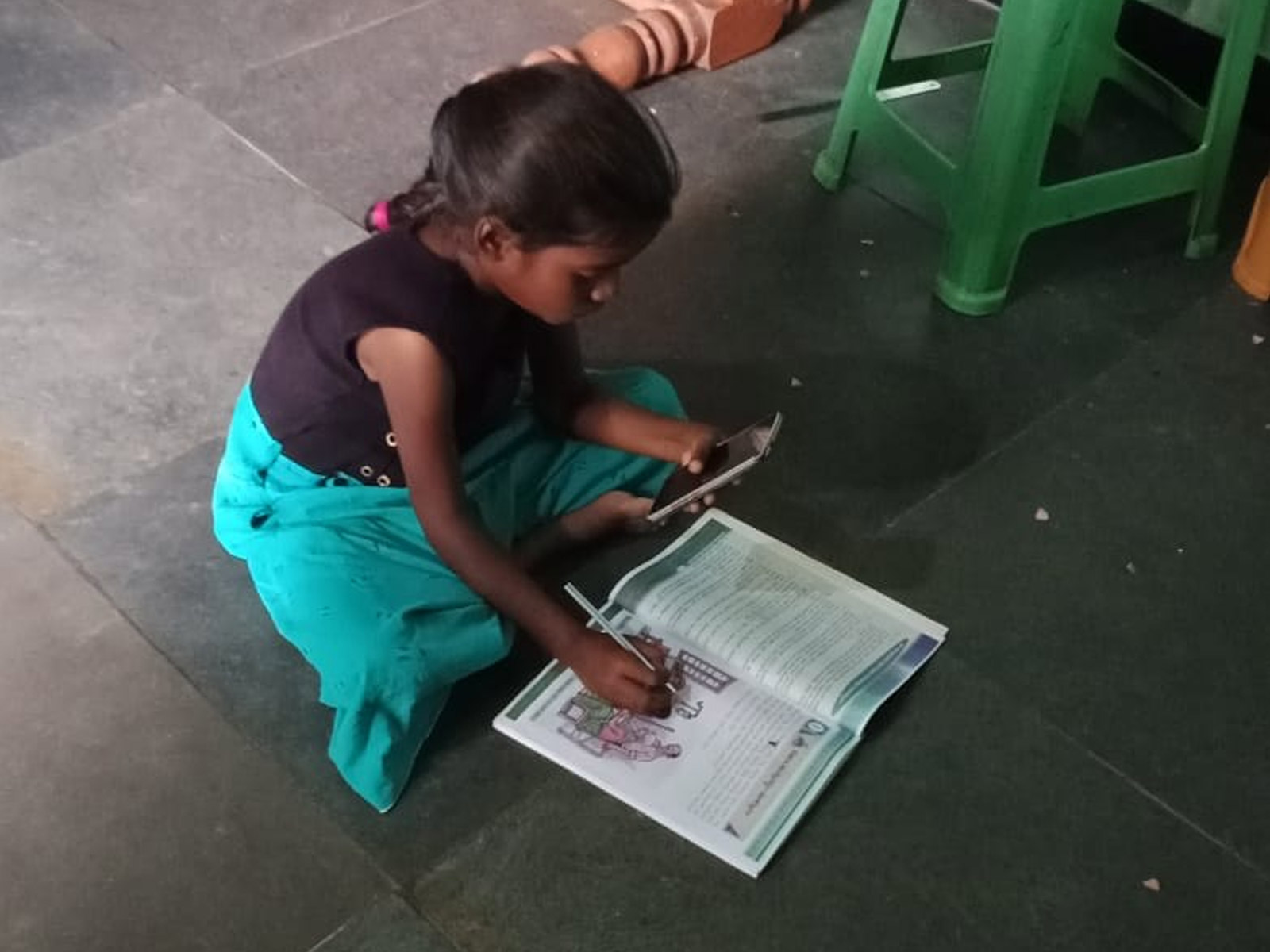
As I am writing on this topic, my mind vividly recollects watching “Tarang” program on Doordarshan when I was a child. NCERT had conceptualized this informative show for kids to impart knowledge via technology while the target audience was in the comfort of their homes.
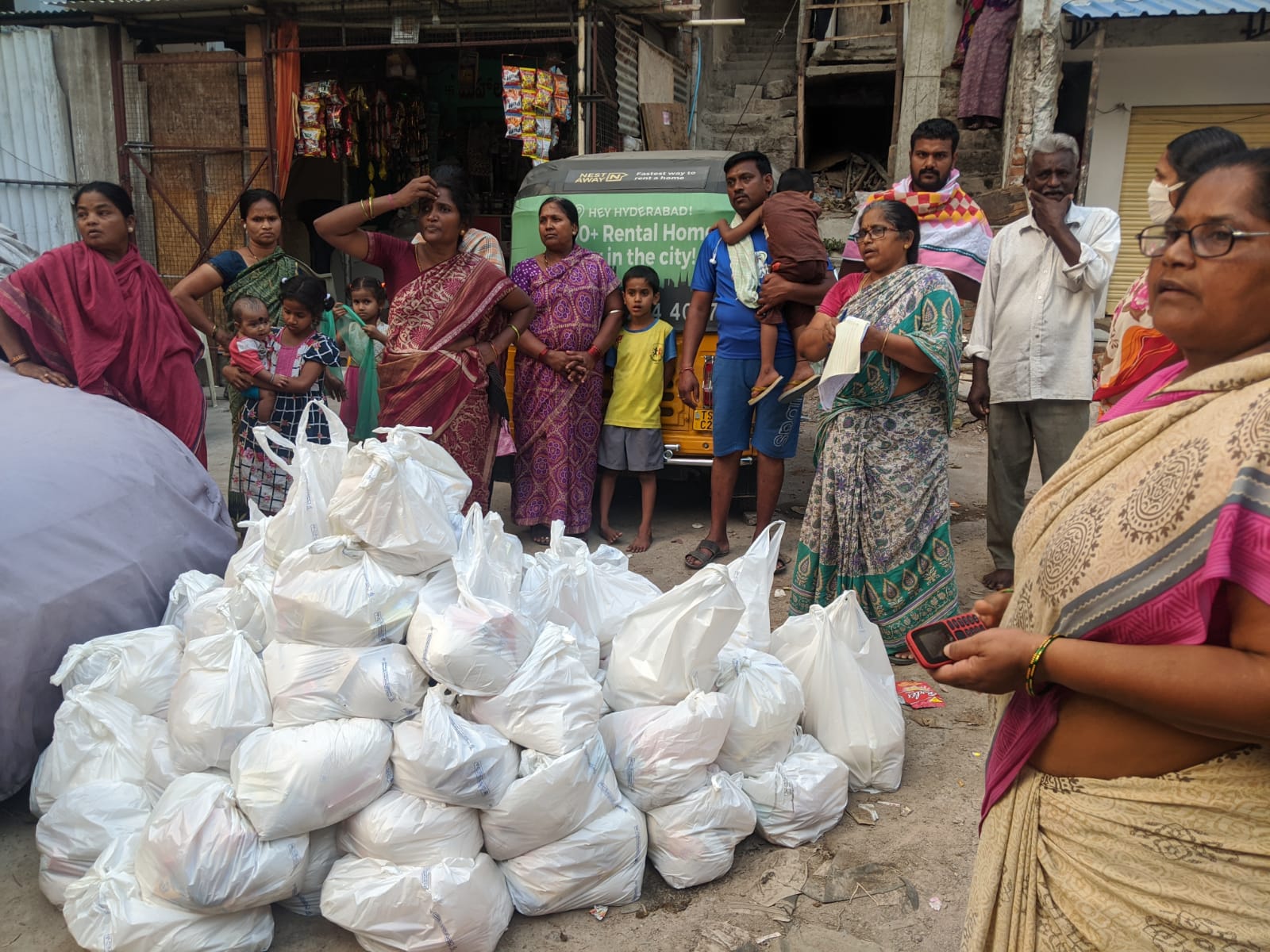
Kriti Social Initiatives has been working for the past 10 years in the slums in Film Nagar in Hyderabad. We largely implement projects to provide skills training for women and improve education for children both through government schools and low income private schools.
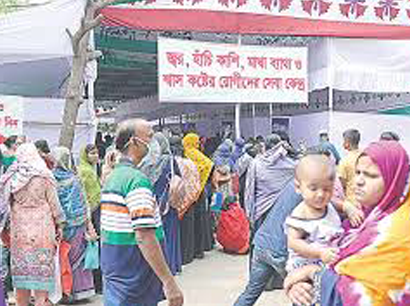
There are 7.8 billion people on this planet and about 36% of this population lives in extreme poverty. India being the second largest country in terms of the population size has a great fraction of its population with nothing to eat, nothing to wear and nowhere to sleep. The condition of the Indian poor especially, the urban poor is tragic.
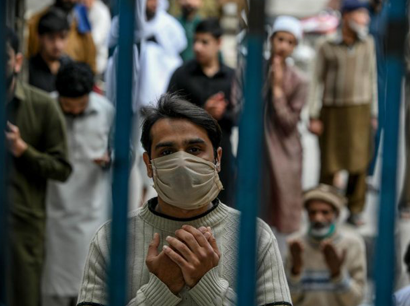
Lockdown, quarantine, and self-isolation- these are some few things we never saw as privilege. We perhaps never realized that someday, merely getting to stay inside our homes would be all to stay safe and protected. Never realized this, until we saw humans (in large numbers) stuck in the middle of nowhere, with neither a drop of water to drink or any food to eat. Not until we saw hundreds of migrant workers, forced to walk hundreds of kilometers to reach their homes. Not until we saw that ‘Social Distancing’ holds no value when you have to catch the few buses provided by the Government at Anand Vihar ISBT.
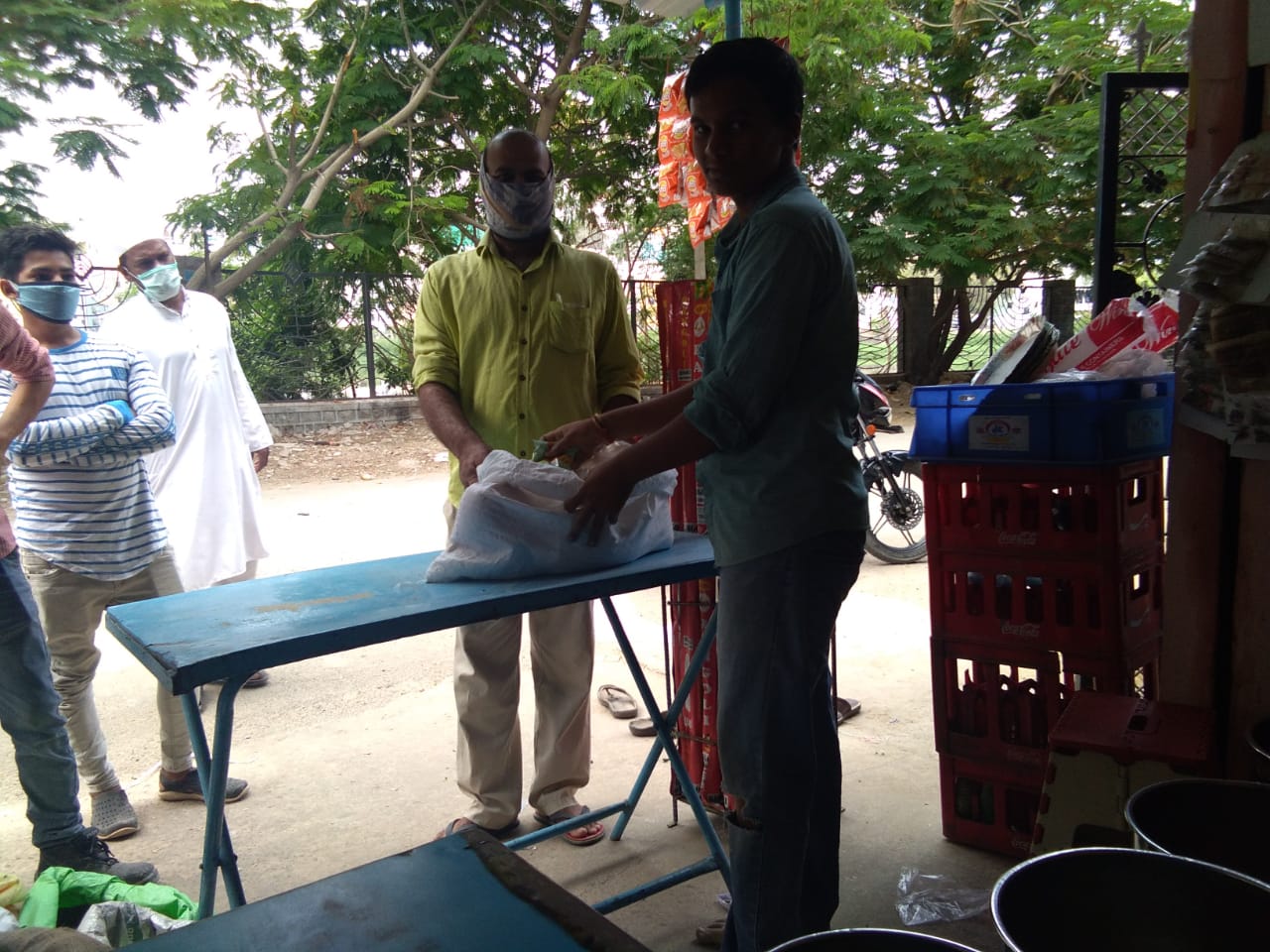
Ramakant lives on the construction site where he works as a daily wage labour. He has come from a small village in Bihar. He stays with fourteen others. He and his five other friends cook together. They used to earn Rupees 600 to 700 daily.He came to Hyderabad just a month back.

From July 25 to July 30th, 2019, more than 20 individuals of various age groups/ backgrounds/ professions and from various regions of the country got together with one single purpose in mind – exploring the best practices followed by some interesting schools...
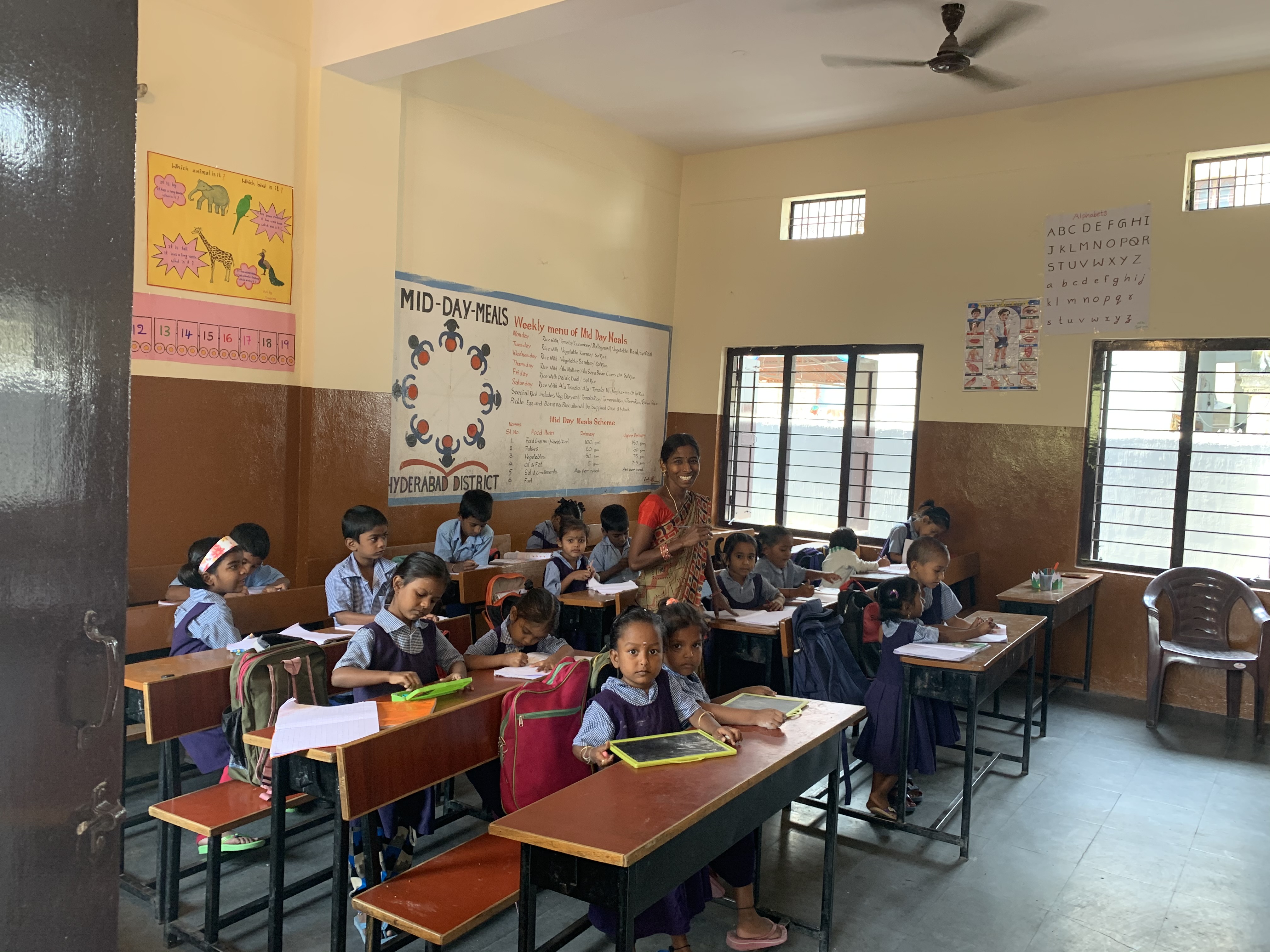
Over the summer, one day, my maid brought her nine year old daughter along with her as she came to work. To entertain the child while she was waiting for her mother to finish her work, I pulled out a few bilingual books I had – in Telugu and in English. I thought the girl would enjoy reading the Telugu stories. While she struggled with the English words for a while, she showed absolutely no interest in the Telugu text. I guess this experience, made the findings of our Baseline survey across six government schools less surprising. Kriti Social initiatives, the NGO where I work, runs Project Shiksha (https://www.kriti.org.in) – a program to support government schools (mostly primary schools) in Sheikpet Mandal with additional teachers, teacher training and infrastructure support. We are working with five government schools and have seventeen teachers on our payroll who are placed across these schools. In the month of July 2019 we conducted a simple evaluation of all the students in the primary classes across four out of these five schools. 970 children were enrolled across class 1-5 in these schools and 857 children (approx. 85%) completed the assessments. The assessments covered English, Telugu and Mathematics. The format was basically derived from the ASER format developed by Pratham (http://www.asercentre.org/). Additional inputs were taken from their school textbooks and also the learning goals prescribed by the State Education Board for each class. The teachers were trained to conduct the assessments. The assessments were done for each child individually. The schools have a mix of Telugu medium and English medium classes. In some cases the Telugu medium and English medium children are in the same classroom as both rooms and teachers are not enough to split into two sections. It was surprising to find that children are reading better in English than in Telugu. Surprising and also a little heart breaking. Because while they are somehow reading out the letters and trying to form words in English, they don’t comprehend anything of what they are reading. In their mother tongue, the words would actually mean something to them. But with the obsession with “English medium” both teachers and parents are not spending enough time on the Telugu alphabets. On an average we find that children are at least two grades behind where they should be in terms of the 3 ‘R’s – reading, writing and arithmetic. Almost all the fourth grade children could recognize letters and read small words in English, but only 50% of them could read a small story. Almost all fourth grade children could read numbers and do basic addition, but only 60% of them were able to do single digit division. And surprisingly only 30% of the children were able to read a simple paragraph in Telugu. How do we counter this concern for education in English? Given that the parents don’t speak English and neither do the teachers, what is the child going to learn by staring uncomprehendingly at his or her English textbooks? I wish the children were free to only learn in their mother tongue. Is it not more important that they read stories, expand their vocabulary, have real conversations with their teachers and learn to express themselves in words that make sense to them? [Despite my personal views on this topic, our organization Kriti, is still appointing teachers to teach in “English medium” in government schools. We are also being swept along on the tide of public sentiment. ] To improve the understanding of Mathematics, Kriti has started Maths activity labs in three primary schools. Children are given physical stuff like small beads, cards and the teacher does activities with them.






